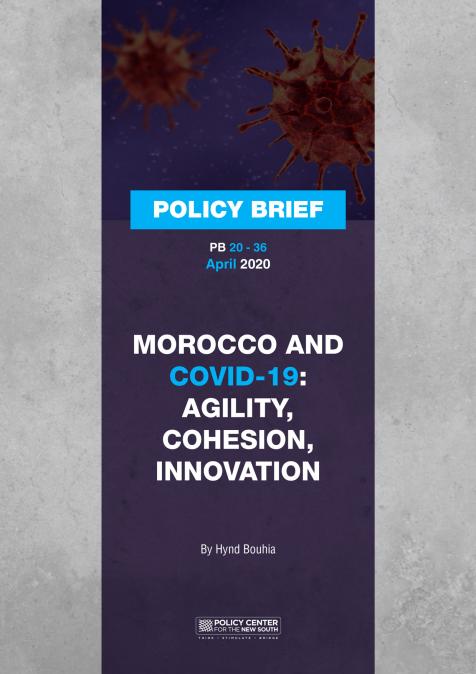Publications /
Policy Brief
Morocco is today cited as an example for its dynamism, its leadership, under the impetus of His Majesty King Mohammed VI, and, above all, its coherence in decision-making and the involvement of the population, through the Covid-19 Special Fund and the media to maintain public confidence. Indeed, the safety of the Moroccans was given priority over all other considerations, which made it possible to speed up the handling of the events and to supervise the management of the contaminated persons. The present analysis describes the different facets of the impact imprinted by the Coronavirus crisis in Morocco on society, the economy and the environment. It showcases the country’s creativity and frugal innovation. It also positions the crisis in relation to the new economic model and the sustainable development goals of the United Nations, while supporting the important role of the international financial institutions in maintaining macroeconomic, financial and social stability in Morocco and Africa.











